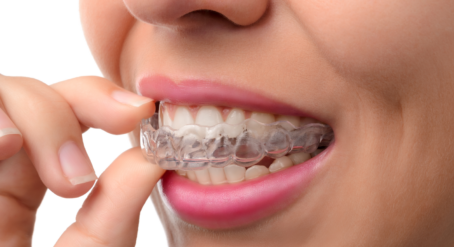Many parents want to know the best age to take their child to the orthodontist. It might be because it’s a topic of conversation among parents or their children in the schoolyard, or they want to prepare for the cost of orthodontic treatment in the future.
It’s natural to want your child to have a beautiful smile (and the confidence that comes with it!) as soon as possible. In reality, there’s no one ‘best’ age to start orthodontic treatment – it varies from child to child and depends on the issue that’s being treated.
However, one thing that can be said for certain is that an early orthodontic evaluation is always a good idea. That’s why we’re going to answer eight common questions around early orthodontic treatment – so you and your child can feel confident in seeing an orthodontist.
1. When should your child see an orthodontist for an assessment?
One of the most common questions we get asked is how early is too early to get braces? While people of any age can benefit from braces, we recommend children visit a registered specialist orthodontist for an assessment between the ages of 7–10 years old. This allows the orthodontist to evaluate your child’s teeth to determine if they may be a candidate for early treatment. Your orthodontist’s assessment will cover existing teeth as well as those that are yet to break the surface to help predict their future growth.
2. How do I know if my child needs early orthodontic treatment?
Every child can benefit from an early orthodontic evaluation. There are, however, a couple of signs that would suggest your child could benefit from a visit to the orthodontist, which include:
- Losing baby teeth prematurely due to cavities (decay) or trauma
- Snoring or consistent mouth-breathing
- Teeth that don’t meet properly when your child bites together
- Protruding and/or overcrowded teeth
- Difficulties with biting or chewing
- Thumb sucking
- A family history of impacted or missing teeth
3. At what age should your child start orthodontic treatment?
We would recommend that you take your child for their first orthodontic evaluation when they are between 7–10 years old. While there’s no normal age for children to get braces, at this early stage in your child’s life they’ll have a mix of adult and baby teeth. This can help the orthodontist determine if there are any developing problems such as misalignment of the jaws, crowding, or overbites.
The orthodontist may recommend a course of treatment to begin one to five years after the initial evaluation, but in other cases there may be early measures the orthodontist can take to intercept developing problems, such as space maintainers or palatal expanders.
4. What are the benefits of early orthodontic treatment?
Early orthodontic treatment begins while your child’s jawbones are still soft. They do not harden until children reach their late teens. As the bones are still pliable, corrective procedures may work faster and more effectively than they do for older teens and adults. Appropriate early treatment is an effective interceptive measure that lays the foundation for a healthy and well-functioning mouth in adulthood.
While your child’s teeth may appear aligned and straight, there could be underlying issues that need to be addressed to prevent more serious problems from developing. Early intervention may also sometimes simplify later orthodontic treatment.
Getting orthodontic treatment early on might also help to prevent physical and emotional trauma that may result from poorly positioned teeth. Protrusive upper front teeth can make your child prone to injury – particularly while playing sports – and may prevent good oral hygiene.
5. What does an orthodontist look for when determining if a child needs early orthodontic treatment?
Your orthodontist will typically examine your child’s first permanent molars, which are the big teeth at the back of the mouth. This will give your orthodontist an opportunity to check for a developing malocclusion, also known as ‘bad bite’. They will also examine any incisors that have come in, so problems such as crowding, deep bites, crossbites, and open bites can be detected.
6. Why is it good to create a long-term treatment plan?
Finding an orthodontic home for your child by age 7 can help them to become familiar with their specialist, which can help to ease any anxiety they may have about their treatment in the future. During your initial assessment, your orthodontist will take an X-ray of your child’s teeth and facial bones to understand how their teeth are likely to develop in the future. They will be able to diagnose any pre-existing issues, present a treatment plan that encompasses their current needs and give you an idea of what may be necessary for the future. While many factors can contribute to the health of your child’s teeth and their need for orthodontic treatment – including early loss of baby teeth or accidents resulting in tooth loss – an early assessment can help you to prepare for treatment in the future.
7. Why should your family see an orthodontist?
Orthodontists are the experts at straightening teeth and correcting bad bites. They begin as dentists before completing an additional three years of full-time study to become registered specialists. This extra training gives orthodontists in-depth knowledge of the latest technologies and best practices to safeguard the health of your child’s teeth.
8. How to find a child orthodontist near you?
If you think your child needs or would benefit from early orthodontic treatment, only a specialist orthodontist has the training, experience and expert knowledge to determine the most appropriate treatment options and the best time to start treatment. When you see a specialist orthodontist you can be confident that your child is in the best hands.
If you’re stuck on where to find a local orthodontist, then you can use our Finder Tool. You can find an orthodontist near you and request a consultation all in the one place.










